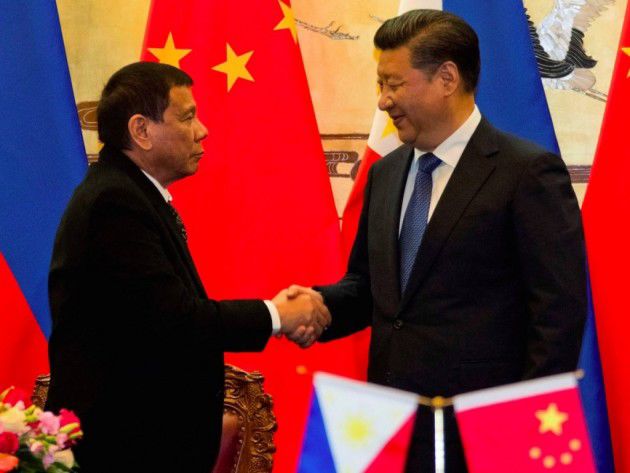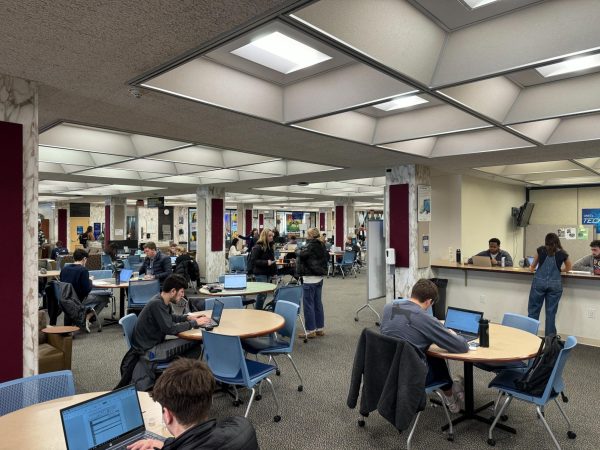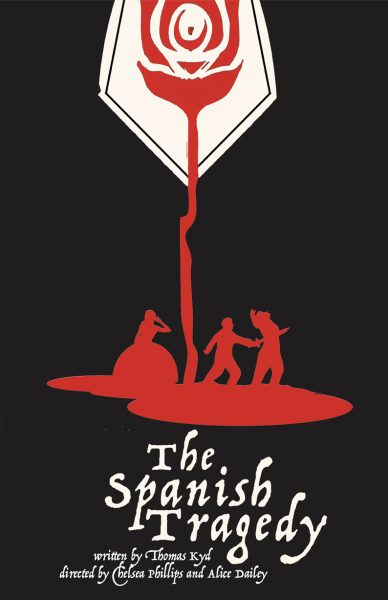GlobalSmackDown: Agreement in South China Sea shifts power balance
November 8, 2016
The complex geopolitics of the South China Sea were again brought to the fore frontas Rodrigo Duterte, president of the Philippines, reached a new agreement with China. The deal, though not formally transcribed or legally binding, grants Filipino fishermen the ability to operate in the contested waters for the first time in approximately four years.
The move is puzzling given the generally amicable history between the U.S. and the Philippines while the Philippines has seen China as an aggressor. But president Duterte has proved to be anything but predictable. The strong relationship between Washington and Manila dates back to the Spanish-American War of 1898, spans through World War II and into the present.
Today, trade between the two nations amounts to approximately $18 billion and the United States is the Philippines’ third-largest trading partner. Washington has also taken the lead in humanitarian assistance following Hurricane Yolanda and, according to polling data, Filipinos hold America in higher regard than Americans do.
However, Duterte’s distaste for America and Western politics is deep seated and he recently asserted that he plans to expel all foreign military presences from his country. While serving as mayor of Davao he was denied a visit to the United States and also drew attention to a bombing that allegedly came at the hands of an American citizen. He has also called the United States a meddling influence in his country and asserts that the assistance only comes when it is politically or economically beneficial for the U.S.
The vulgar and abrasive Duterte, though he enjoys a 76 percent approval rating, has a unique political style. His brutal, extrajudicial war on drugs and crime has drawn the ire of the international community and has been called a humanitarian crisis. His harsh language, directed at U.S. President Obama and Pope Francis, among others, has not endeared him to his contemporaries. He has also expressed an interest in aligning with China and Russia.
Though it isn’t uncommon for either himself or one of his political aids to walk back his comments, leading many to speculate on the nature of his actual beliefs. The United States has long sought to check China’s influence in the region, but China flexed its economic muscle and continued to display a habitual disinterest in accusations of human rights violations.
Beijing recently agreed to provide $24 billion in loans and assistance, via the recently developed Asian Infrastructure Investment Bank, to the Philippines. Though the United States might be content to see a lowering in regional tensions, it won’t be pleased that a long-standing ally has gravitated towards the opposition’s sphere of influence.
However, Washington might also be willing to tolerate Duterte’s transgressions, as it has had to do with other challenging alliances with Turkey and Afghanistan. The United States might also be willing to deal with the rhetoric if a military presence, downgraded or not, is maintained and the economic relationship continues. China will also be pleased as it has lured a geopolitical and economic ally from the West.
It also remains to be seen if Filipinos, who operate in an active democracy, will tolerate the economic woes Duterte’s actions have caused — namely in the form of contracting foreign direct investment and a depreciating peso. If people associate Duterte with divisive foreign policy and a lagging economy, Duterte might not make it as far as he would like.
*Global Smackdown is a 23-minute multimedia forum facilitated by Dr. Tim Horner every Thursday at 2 p.m. in Corr 103.












